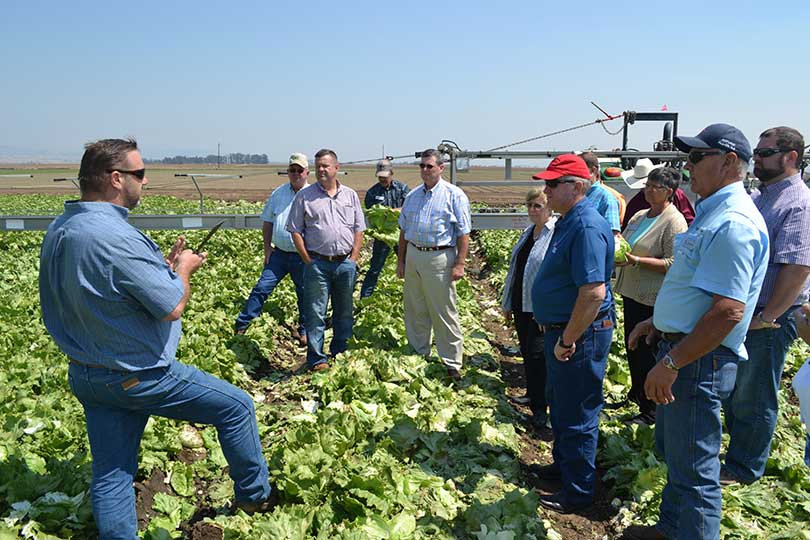A three-hour flight opened the doors for 12 Texas farmers and ranchers to view different agricultural operations and regulations in a new light. Members of the Texas Farm Bureau FarmLead V class toured California in late July.
The participants developed stronger connections and brought home new leadership skills they can take into their county courtrooms, state committees, local organizations and boards.
FarmLead is designed for experienced farmers and ranchers ages 40 and above. Its members travel across Texas and the U.S. to discuss agricultural policy with elected officials and industry representatives.
This FarmLead trip provided the group the opportunity to meet with California lawmakers to discuss key issues impacting agriculture.
“FarmLead participants hear and see water issues facing agriculture and California. They learned about the water infrastructure and delivery through state and federal systems,” said TFB Director of Organization Jamie Gipe. “Fifty percent of all available water is dedicated to the environment. Forty percent of available water is used by agriculture, with 10 percent by urban areas.”
A stop in Sacramento included a visit with California State Senator Jim Nielsen who provided a tour of the House and Senate chambers, along with several historical areas of the Capitol building. Gipe said Nielsen shared unique insights as a rural Republican senator working within a Democratically-controlled state legislature.
“California—with its extreme regulatory, environmental and liberal legislature—provides our FarmLead participants firsthand experience of seeing how this affects farmers and ranchers,” Gipe said.
They also visited several farms, ranches and vineyards during the five-day trip, including a tour of the nation’s largest, privately owned organic vegetable farm—Lakeside Organic Gardens.
Lakeside Organic Gardens is a 2,500-acre organic farm located in Watsonville, Calif. that grows 43 different vegetable crops.
The group also saw walnut, almond, blackberry, strawberry, lettuce and apple operations. They toured several beef cattle ranches and a redwood timber sawmill.
The participants were able to gain insight from other leaders within agriculture and draw ideas from other farmers and ranchers to strengthen their leadership and communication skills.
“From an issues standpoint, FarmLead participants clearly saw they do not want the regulatory and environmental climate of California in Texas,” Gipe said. “They saw the importance of being informed and proactive on issues affecting agriculture. The value of building relationships locally with key officials and legislators was solidified. Uniting as one agriculture was clearly seen as being important.”

